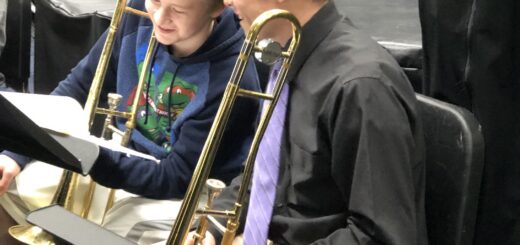We can find wisdom, understanding in learning about other political perspectives
The state of partisan division in this country is distressingly unhealthy as liberals and conservatives alike increasingly fall into the trap of only paying attention to sources that reinforce their world view and dismiss other perspectives.
Sadly, most of us are trapped in our echo chambers and habitually ignore ideas from those who don’t share our views. In today’s media ecosystem, we’ve been conned into believing that those who think differently from us are dangerous extremists. That’s too simplistic.
The good news is that we can make the choice to expand our sources of political information and open our minds to the possibility that we can learn from other perspectives. Indeed, we can choose to find fulfillment in the practice of reevaluating our beliefs and changing them when further analysis merits it. Since when did learning and evolving go out of fashion?
One organization doing important work creating opportunities for individuals to learn about other political perspectives is Braver Angels, a nonpartisan organization that models how to respectfully engage with people who have different views.
Braver Angels recently helped convene a discussion about whether the national media is helping or hurting this country based on how they are covering politics. It featured independent journalists Matt Taibbi and Isaac Saul, who are using creative approaches to bring forth the best ideas from across the political spectrum. You can see the conversation by accessing this link: https://www.youtube.com/watch?v=DM8xgF5ggwI
Taibbi, who writes a political blog called TK Media, pointed out that national media organizations pick demographics to serve and then feed those narrow audiences content that will appeal to them, which has a “deleterious effect on the national discourse.”
Saul, who runs a blog called Tangle, has taken a very interesting approach to covering topics. He does a topic a day , such as on critical race theory or the Biden infrastructure plan and shares what he considers to be thoughtful arguments from both conservative and liberal sources. Then he gives his take on the issue, which almost invariably draws upon aspects of each perspective. “I’m not trying to change anybody’s opinion,” said Saul. “I just want them to hear arguments they might disagree with,” he added.
Taibbi views himself as an “equal opportunity offender” in that the stories he writes at times offend his liberal friends and at other times his conservative friends.
As a subscriber to both Tangle and TK Media on Substack, I have gained an appreciation for their work which has given me a way to challenge my own biases. They bring fresh perspective to national political stories and a level of complexity that is all too often missing from the siloed approach of listening only to perspectives one agrees with.
The freedom to pursue truth outside of the political leanings of mainstream media gives Taibbi and Saul an opportunity to examine thoughtful perspectives across the political spectrum and give their readers food for thought.
As consumers, we have a choice of either remaining in our bubbles and hearing our own views reverberating in the echo chamber or we can take affirmative steps to broaden our sources of information and seek out thoughtful perspectives on both sides of issues.
We don’t have to continue being played by national media and social media outlets into thinking “those people” with different views are extremists.
Braver Angels is one of the few organizations I’m aware of that is actively working to bridge the political divide. They do this with skills building workshops, debates that model courageous and respectful dialogue, and events that allow people to get to know people who think differently. I highly recommend their events and workshops. You can learn more at braverangels.org.



